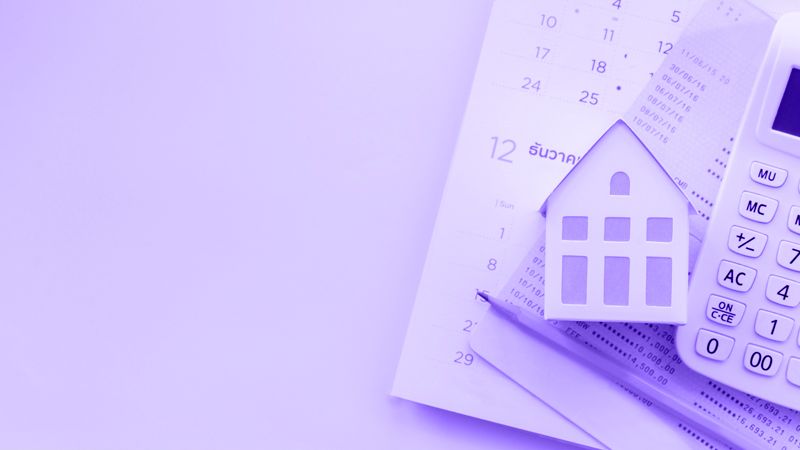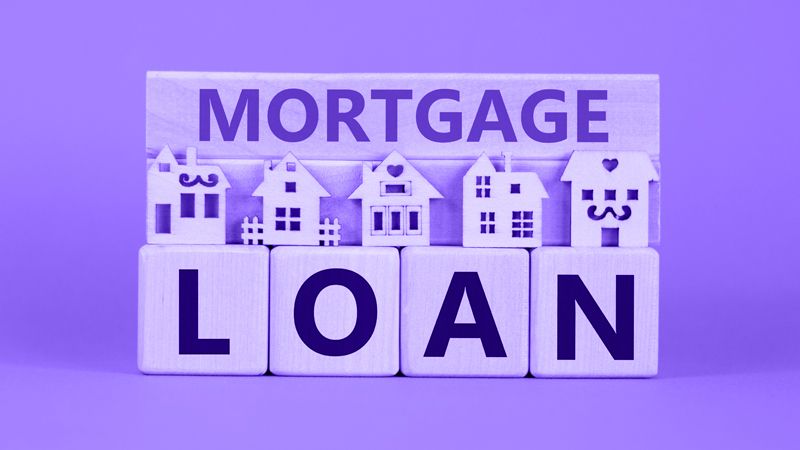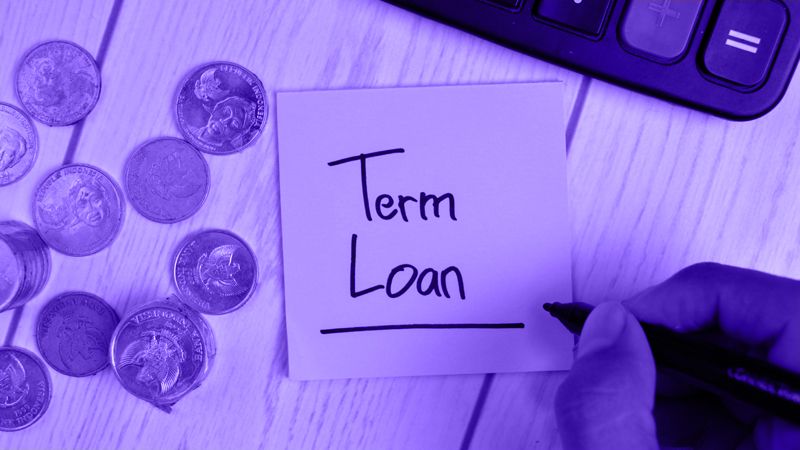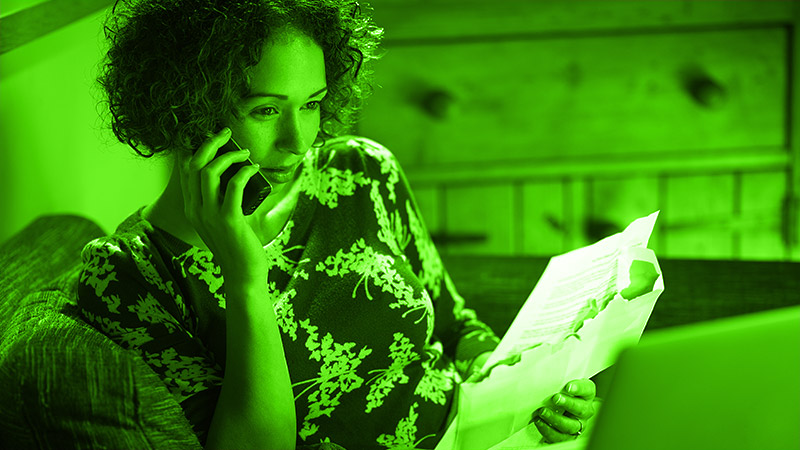Borrowing against your house involves taking out a homeowner loan. You can find lenders in the UK who offer homeowner loans from £1,000 to £2.5 million.
However, the amount you can borrow against your house will depend on several factors, including:
- The property’s value.
- The equity you have in the property.
- Your credit history.
- Your affordability.
- The LTV ratio.
When you borrow against your home, you’ll be able to get higher amounts than you could with an unsecured loan. The risk to the lender is reduced because they can repossess the property and sell it as a last resort to recover the owed debt if you default.
Lenders will look at your monthly income and outgoings to determine how much you can afford to borrow. They’ll also often look at your credit score to determine how well you handle your finances and debt repayments.
A bad credit score may not necessarily disqualify you from borrowing against your house, but it can influence the amount and interest rates lenders are willing to offer.
The equity you own in your home will highly determine the amount you can borrow rather than the worth of your house. This is especially significant if you have a mortgage on your home.
What Is House Equity?
House or home equity refers to the value or portion of your property that you truly own. You’ll have 100% equity in your home if you own your house outright, but the proportion will be lower if you still have a mortgage.
You can easily work out the amount of equity you have in your house by subtracting the amount you have left in your mortgage from its current market value.
For example, let’s say you bought a house worth £300,000, put down a deposit of £60,000, and took out a mortgage to cover the remaining £240,000. In such a case, you would have £60,000 equity in your home.
Remember, the equity in your home grows over time as you continue to repay the mortgage and as the value of the property increases. If you’ve owned your house for several years and you’ve kept up with mortgage repayments, you likely have much more equity in it than when you originally bought it.
The more equity you have in your home, the more you’ll be able to borrow against your house.
The Loan To Value Ratio
The loan to value (LTV) ratio is an important metric that assesses the lending risk lenders carry by providing you with a loan. It’s an important figure for re-mortgagers and homebuyers, and it will have a considerable impact on your borrowing power.
The LTV refers to the size of the loan relative to your property’s value or the equity you have in the property, and it’s expressed as a percentage. It shows how much equity you have in the house you’re borrowing against or how much money would be left if you sold your home and paid off the loan.
The LTV is vital when determining how much you can borrow against your house because it assures lenders. Lenders use it as they consider whether to approve a loan and what terms to offer. If the LTV is higher, the risk is higher for the lender, and if you default, the lender is less likely to recover their money by selling your house.
All homeowner loans set a maximum loan to value ratio. If yours is too high, your loan may not be approved, or you may be required to purchase mortgage insurance which protects the lender if you default and they’re forced to foreclose.
Related quick help guides:
- Secured loans brokers.
- Secured loans for pensioners.
- Secured loans for self employed.
- Interest only secured loans.
- Can I get a secured loan on a buy to let property?
- Secured business loans.
Calculating the LTV
You can calculate your LTV by dividing the amount you wish to borrow with the equity you have on your house.
LTV = Loan amount / Equity
For example, if your equity is £300,000 and you want to borrow £180,000, the LTV would be 60%.
If you have an outstanding mortgage balance on your property, you must deduct the balance before calculating your LTV.
For example, if your home’s value is £300,000 and you have an outstanding balance of £60,000 on your mortgage, you have an equity of £240,000. If you want to borrow £180,000, the LTV will be 75%.
How The LTV Impacts Borrowing Against Your House
Interest Rates
The higher the LTV, the higher the interest rates since lenders will consider you as riskier. Therefore, you should aim for a lower LTV, which will reduce the interest rates and translate to lower monthly payments and less strain on your finances over the loan’s term.
Loan Amount
The LTV will determine your credibility, and the lower it is, the easier it becomes to qualify for more favourable terms, including higher loan amounts and low rates. If you’ve been paying off your mortgage and your home has risen in value, then your LTV will be lower, helping you qualify for better deals.
Can I Borrow Against My House With Bad Credit?
Yes. Even with bad credit, you can borrow against your house and get approved. The loan is secured against your property which significantly reduces the risk for the lender since they can repossess and sell the property if you default.
If you’ve found it hard to get approved for a loan because of your credit score, borrowing against your home may be an option. You may get access to higher amounts with easy repayments that will help improve your credit score.
Remember, like other forms of borrowing, your credit history plays a part in the lending decision. Lenders may charge you higher interest rates if you have bad credit or cap the amount you can borrow.
Other Costs To Consider
Valuation Fees
A valuation to ensure your house is worth the amount you’re borrowing may be necessary. The lender can arrange for this, but you may have to pay for it, and the costs may vary depending on your property’s location, value, or terms of the deal.
Insurance Fees
Lenders may require that you have your house insured, especially if the LTV is high. Insurance protects you and the lender when you’re unable to repay or any unfortunate event causes damage to the property’s structure.
How Much Can I Borrow Against My House? Final Thoughts
Borrowing against your house provides you with access to large sums of money depending on the equity you have in your property, your credit score, and your LTV ratio.
It also comes with the risk of losing your home if you fail to make repayments, so it’s vital to ensure you can afford the loan amount you’re requesting over the long term.
Give Loanable a call today on 01925 988 055 and they will provide you with the best deals available to meet your circumstances and consider any credit history you may have. With their expert advice, they can guide you through the process and give you the knowledge and confidence it takes to acquire a secured loan that is right for you.
If you have read all the information on secured loans carefully and feel that you want to proceed with a secure loan, get in touch with one of Loanable’s secured loan experts by emailing hello@loanable.co.uk who can work with you to find the best deal for your needs and circumstances.

















